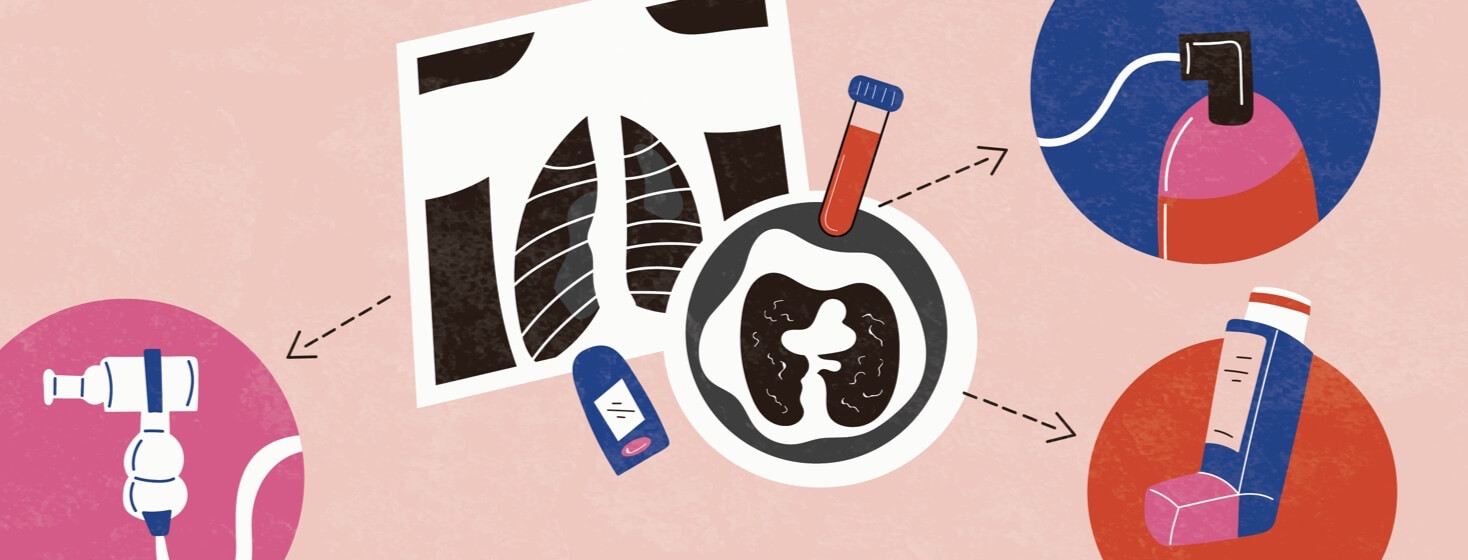Routine CF Screening 101
When you live with CF, there are many appointments and routine tests completed to make sure you are healthy and thriving. Firstly, there are different tests to diagnose CF in infancy and beyond. Then, some other tests are completed at each quarterly CF appointment or more frequently as a part of your routine CF care. Lastly, there are tests done less frequently such as annually or every few years to screen for complications caused by CF.
We’ll focus on the different tests that may be done to screen for common complications of CF. This is just a general guide and you and your CF care team will decide together which tests are important in your individual care.
Which tests are used to screen for complications in CF?
Chest x-ray
Chest x-rays are used to take a picture of your lungs. Using an x-ray, the images can identify lung infections, scar tissue, pneumonia, or pneumothorax caused by CF.1 Comparing x-rays overtime is a helpful way for CF care teams to see any changes in the function and structure of a person’s lungs.
Recommended: Every 2-4 years if stable1
Sputum culture
A sputum culture, or throat culture, collects a sample of mucus from the lungs that is tested for different bacteria, fungus, and viruses. Many children and adults are able to cough up mucus and spit in a cup, but younger patients may need the back of their throat swabbed to collect a sample.1 The results help care teams determine which medications can be used to best treat the bacteria in the lungs.
Recommended: Yearly but preferably quarterly1
Fat-soluble vitamin labs
People with CF have a harder time absorbing fat soluble vitamins such as vitamin A,D,E, and K. Fat-soluble vitamin deficiency can lead to issues with bone density, malabsorption, and various other complications.2 Blood work is taken to measure fat-soluble vitamin levels each year and the information is used to help tailor diet and supplements to get the vitamins they need.
Recommended: Yearly1
Liver enzymes test
Liver disease is an increasing complication of CF. CFTR modulators such as Trikafta can also cause liver injury as well. Liver function tests are completed every 3 months for the first year and then yearly while taking Trikafta.4
Recommended: Quarterly for the first year and then yearly while taking Trikafta4
DEXA Scan
A dual-energy X-ray absorptiometry (DEXA) scan is a painless Xray of the hip and spine that measures bone density and mass. It can pinpoint weak bones in the body and the chances of developing osteoporosis. Depending on you bone health, it can be done every 1-5 years for adults over 18.5
Recommended: Every 1-5 years5
Oral Glucose Tolerance Test (OGTT)
Fifty percent of adults with CF eventually develop CF Related Diabetes (CFRD). The gold standard way to screen and diagnose CFRD is an OGTT which involves drinking a sugary drink and giving a blood sample to measure the glucose in the blood overtime. If the glucose measured in the blood is >200mg/dl a diagnosis of CFRD is made.6
Recommended: Yearly after age 106
Colonoscopy
People with CF are 5-10x more at risk of developing colon cancer in their lifetime in comparison to the general population. The risk is even higher for people who have received a lung transplant. In order to prevent and detect colon cancer, it is recommended that people with CF start getting colonoscopies at 40, every five years.7-8
Recommended: Every 5 years starting at age 407
Depression and anxiety screening people with CF as well as caregivers are also at a higher risk of developing anxiety and depression. A focus on mental health wellbeing is an important part of living with CF. Yearly screening for depression and anxiety is recommended using two quick surveys, the PHQ-9 and GAD-7.8
Recommended: Yearly8
Are you up to date on your routine CF tests? Which ones are your least favorite to be completed? Share with us below!

Join the conversation